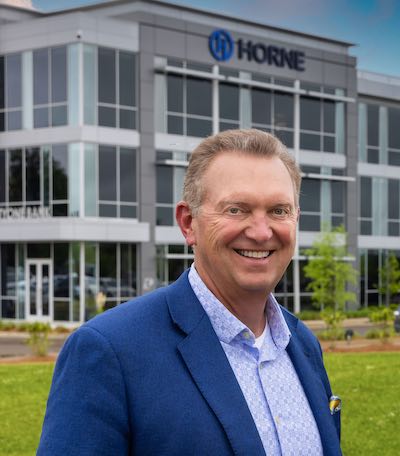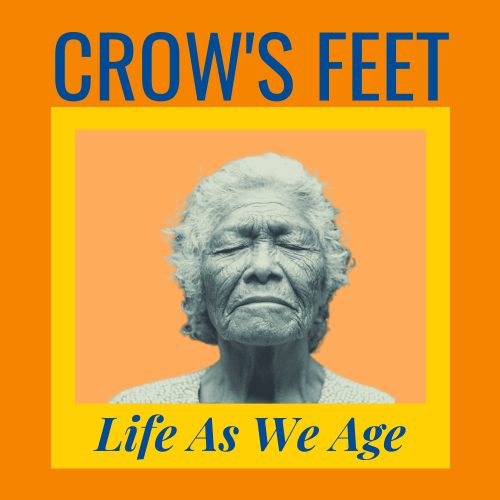Stop Being “Helpful!”
The fallacy of values-based consulting
“Wait. What?”
My regular readers should be forgiven for their cognitive dissonance. I have written often about my consulting values:
- Be authentic
- Be helpful
- Stay focused on results,
I have even suggested that all consultants should have these same values. I might even still believe that, despite how self-centered and arrogant that sounds.
My point is that values are personal, internal, developed through life lessons. The very idea that I might suggest to others that they adopt my values suggests that, despite all my verbiage to the contrary, I did not escape the consultant disease, “being a bit too full of myself.”
“Oh, but that wasn’t my intention.”
Well, you know what they say about intentions. . . “road to hell” and all that.
I preached results because I saw consultants (including me) get hung up on service offering deliverables and recommendations and then, nothing changed for the client’s business.
I preached authenticity because, the little voice in the back of my head was saying the opposite of the words that came out of my mouth.
I preached being helpful because I believed, still do, that consulting is, can be, should be a “helping” profession like medicine or psychotherapy.
Do sermons work?
I am not a regular church-goer, but I’ve been to Sunday services in many churches of various denominations. I’ve gone with friends to some synagogue services, at Jewish holidays. I’ve been to revival meetings of Billy Graham and some real tent revivals in Kentucky. I don’t think I’ve ever changed my behavior dramatically because of a sermon, but people do sometimes, I think. Perhaps, the occasional repentant sinner, is what keeps preachers like me preaching.
But preachers forget that the sinner’s heart must be open. Alcoholics Anonymous works hen the member has hit “rock bottom.” A helping hand is grasped when you are falling and know it.
Help is defined by the recipient.
I first read Carl R. Rogers, “The Characteristics of A Helping Relationship” (September 1958, The Personnel and Guidance Journal) in Psychology 101. Like a lot of assigned reading in college I absorbed enough to write a paper and answer questions on an exam.
Rogers was an American psychologist who introduced a humanistic, client-centered approach to psychology, perhaps in reaction to the intellectually analytical followers of Sigmund Freud and the experiential analysis of Carl Gustave Jung. His work became part of the “Human Potential Movement,” of the 1960s and 70s.
The second time I came across the “helping relationship” article was in instructor training for one of the Forum Corporation’s management training courses. This time it had a more profound impact on me.
“Help is defined by the recipient.”
“Help that isn’t asked for explicitly is rarely perceived as help, but likely to be perceived as interference.”
“You can’t help someone you dislike. Therefore the first requirement of the helping relationship is “unconditional positive regard.’”
To be clear these are not direct quotes of Dr. Rogers’ article, but they are direct quotes from the Culler sermon that emerged from my reading of that article. I preached this definition of help in management training, to internal and external consultants I trained, in articles.
Maybe sermons work, . . . sometimes . . . for some people.
I have found that many consultants think of themselves as helpful. A manager in a British consulting firm once described his job:
“Imagine a group of people of considerable ego, whose view of themselves has progressed to the point that they believe that others should pay them for their advice. Now imagine managing such people. Managing consultants is an oxymoron, a complete and utter contradiction in terms.”
Once again, to be clear, I include myself. I worked for thirty-seven years as a consultant, was unmanageable, and even fell into the trap of being “helpful,” when I was not asked.
That is the key to being helpful. You have to be asked for help. And not in a general way that occurs in any client consultant contracting session, “. . . and anything else you see while you are here.”
So every time I wrote a whitepaper about “unsolicited observations from my work,’ when I thought I was being “helpful,” I was really a self-involved geek. Every time I turned to the last page in the final presentation, the “pitch for additional work,” (which was called something lofty to the client but the “pitch” to the consulting team), I was acting in my own self-interest not “helping.”
That’s the bit that all-too-frequently, we consultants miss. Help must be asked for. Even this post falls into that trap – unsolicited advice. Perhaps if you’re reading it, it is your choice.
Soliciting “the ask”
“How do you get the client to ask?” I was frequently asked this during the Culler consulting skills sermon.
My answer was “it starts early in the contracting session.” If I was working with an executive who was leading a change, early in the discussion I would ask, “What is your part of this problem?” Depending on the answer, I could ask if the client wanted my observations and feedback.
Waiting till later, “Can I give you some feedback?” is less optimal. A colleague once said to me “Whenever anyone asks me that I always say ‘No!’ ‘cause it’s always bad news. Nobody asks permission for the good stuff.”
If you weren’t asked, Stop Being Helpful.
Here are some ways I have seen consultants (including me) offer help. When you haven’t been asked,
STOP:
- Selling “Chicken Soup” projects. This comes from a story about a mother extolling the virtues of chicken soup in fighting colds: “Well, it couldn’t hurt,” If you hear the client, your boss, or anyone say that about a consulting project – Walk away. Selling the latest management fad, or a project that isn’t designed to solve a specific problem or achieve a specific result isn’t “helpful.” It will give you, your firm, and the whole profession a bad name.
- Evaluating the client’s people. You probably don’t know enough. “I have a real problem with so and so.” Who cares! It’s not you job.
- Taking actions that the client should take, like handling complex statistical analysis in a continuous improvement project you’re Coaching, or calling key customers speaking on behalf of an executive.
- Making yourself Indispensable and the client dependent, Facilitating every meeting, typing up all the notes, doing all strategic or organizational analysis, talking in inscrutable language and using undecipherable frameworks.
- Pitching new work before you deliver results on what you’re working on. I know, I know, extensions and expansions are how consultants get promoted, but look at the client resources available and ensure that results can be delivered.
- Forgetting to leave. Plan for disengagement. Plan to teach the client enough to achieve and maintain results. Remember it’s the client’s business.
Remember: The Client’s experience determines if you are “helpful,” not your intention.
The post Stop Being “Helpful!” appeared first on Wisdom from Unusual Places.
Originally Published on https://wisdomfromunusualplaces.com/blog/























